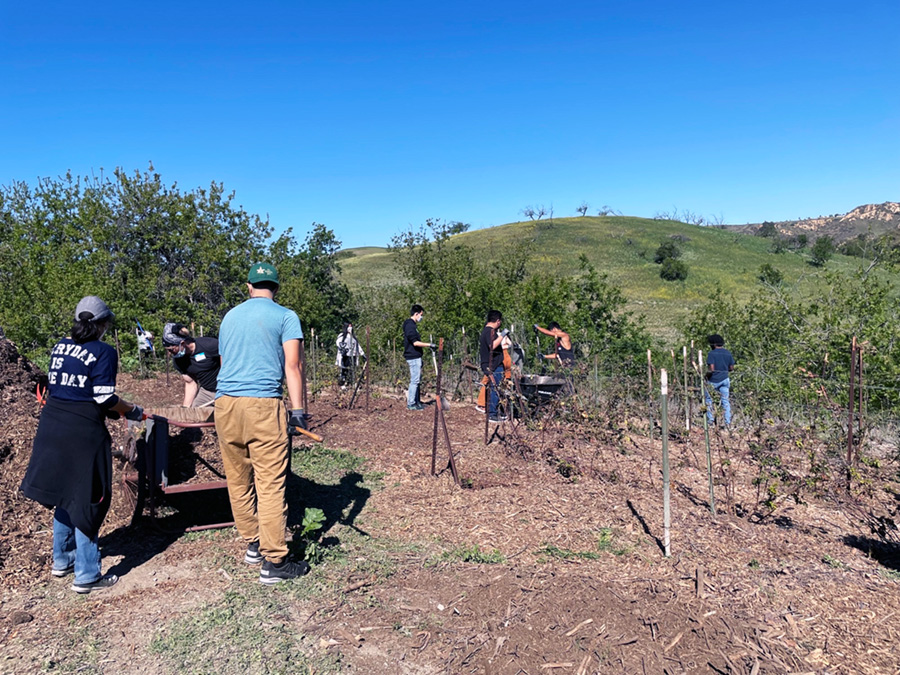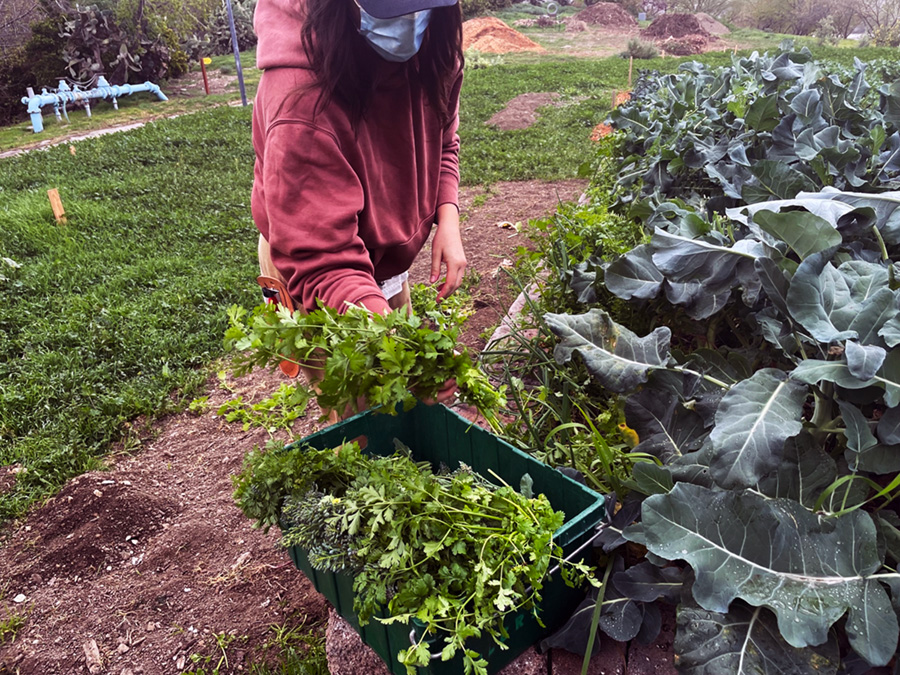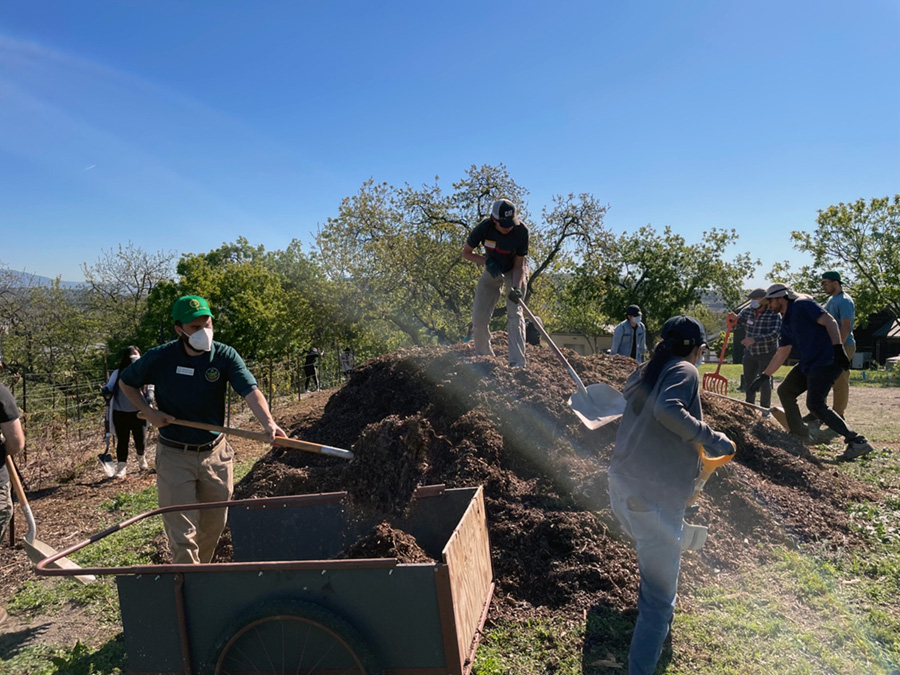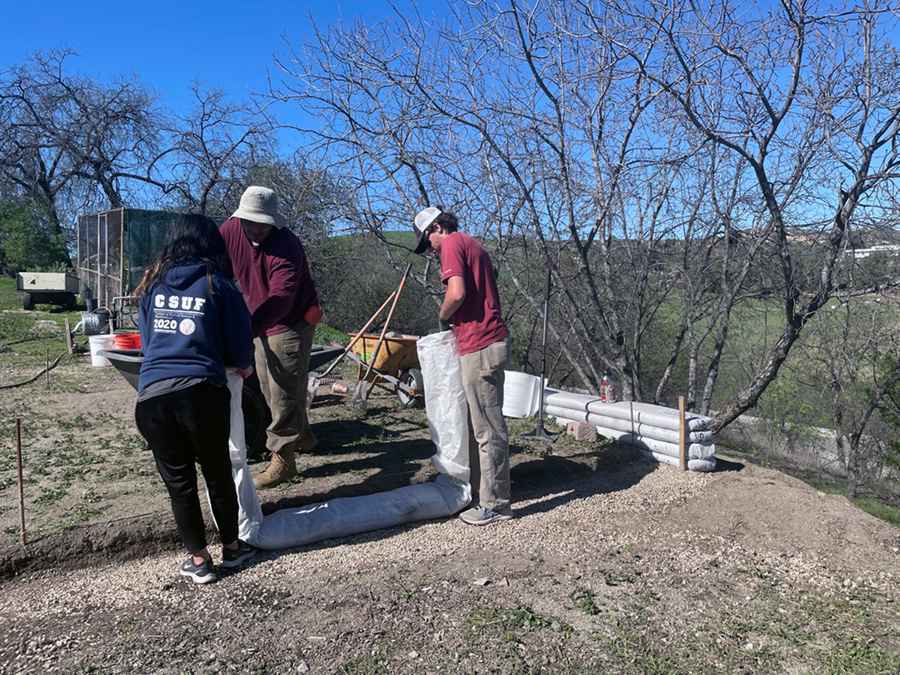Randall Lewis Fellowship
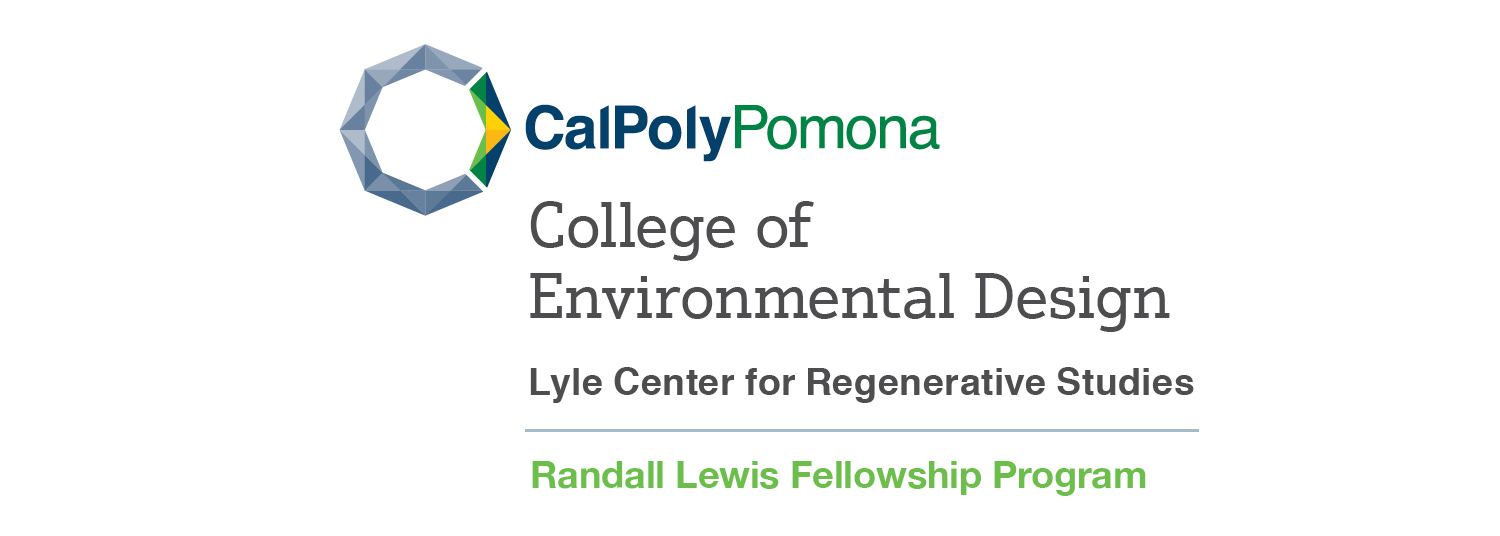
Press the tab key to view the content. Use the down arrow key to move to the next tab and up arrow key to move to the previous.
The Randall Lewis Lyle Center Fellowship is seeking dynamic and engaged Cal Poly Pomona students to work on site participating in the regular site maintenance and regenerative food production activities at the grounds of our 16-acre living laboratory at the Lyle Center for Regenerative Studies.
This will involve such activities as weed control, walkway clearance, fence repair/replacement, seed planting, transplanting, harvesting, pruning of fruit trees, hauling mulch and compost, irrigation troubleshooting, pest management and other tasks associated with regenerative architecture and the regular maintenance of the grounds as needed.
Randall Lewis Fellowship Fall 2023: Applications due on Friday, August 18, 2023 by 5:00 p.m. (PST).
The number of fellowship positions are based on renewed funding availability.
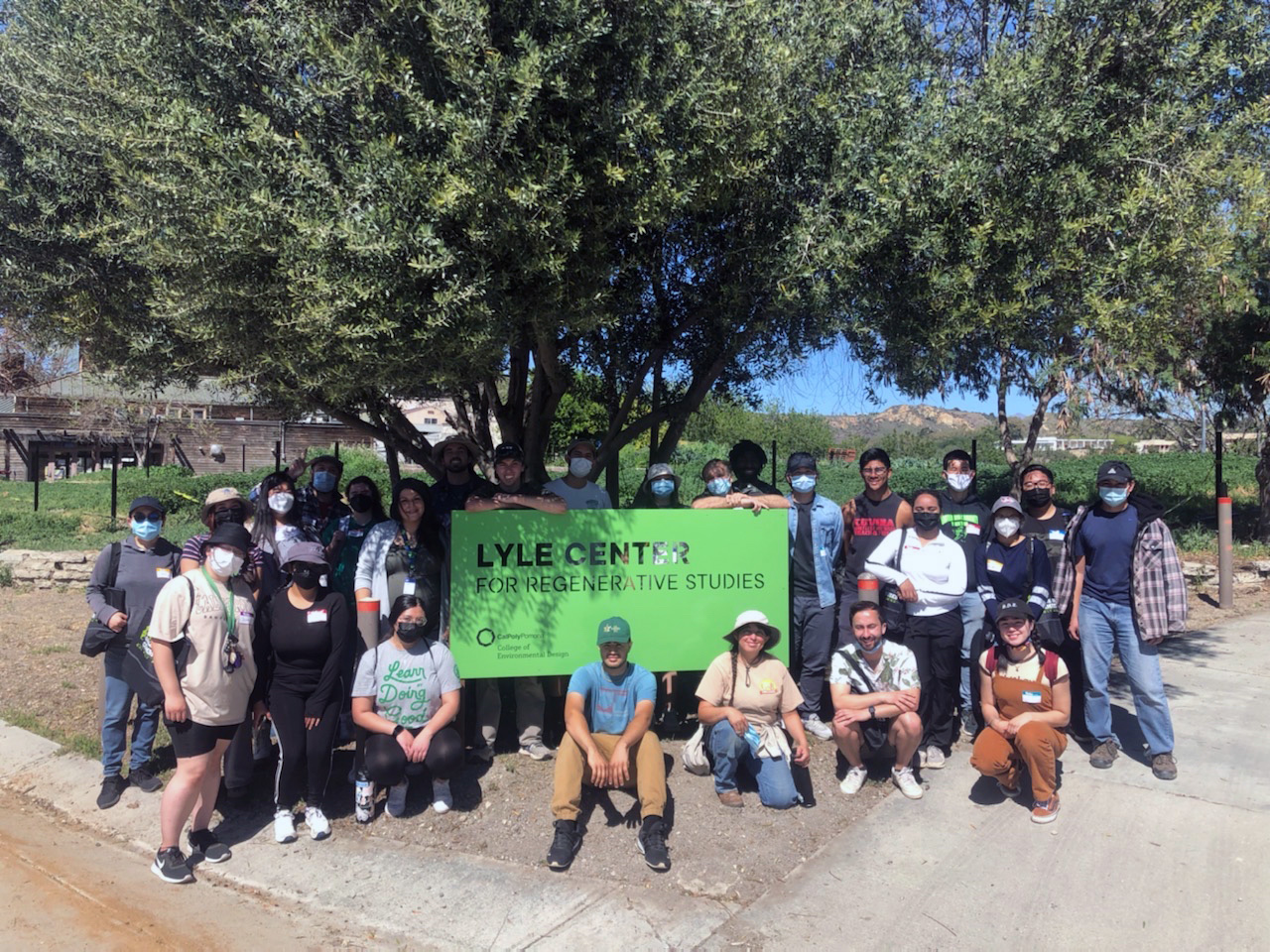
The Spring 2023 application period for the Randall Lewis Lyle Center Fellowship is now open.
Fellowships are for the entire academic semester (10 hours/week for a 15-week period), with fellows each receiving fellows each receiving a $2,400 stipend.This opportunity is open to all Cal Poly Pomona undergraduate and graduate students.
|
TERM |
NUMBER OF |
APPLICATION |
BEGIN |
END |
|---|---|---|---|---|
|
Spring 2023 |
2-4 |
Sunday, Nov. 13, 2022 by 11:59 p.m. (PST) |
Jan. 23, 2023 |
May 12, 2023 |
Each semester, the Lyle Center for Regenerative Studies names 2-6 Cal Poly Pomona students as Randall Lewis Fellows. The program is open to all majors, providing hands-on opportunities for students to apply classroom theory to real-world community programs such as The Poly Pantry, an initiative under the university's Broncos Care Basic Needs program.
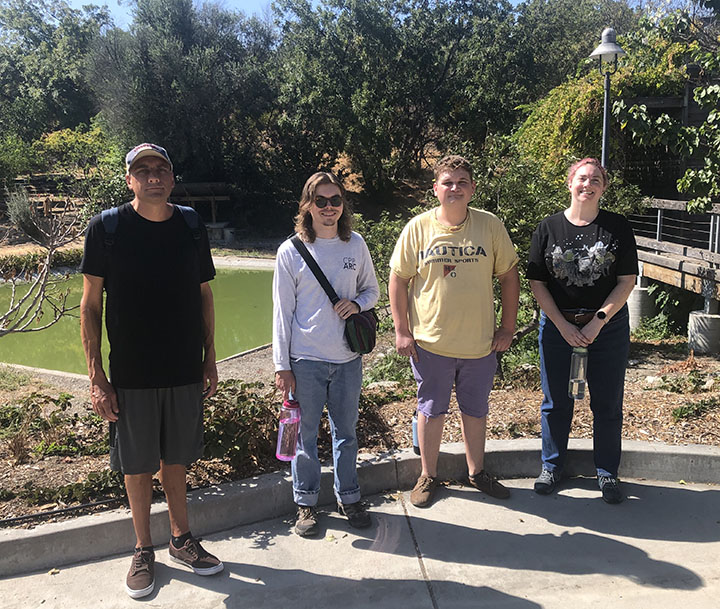
Pictured, left to right:
Michael Zullo – Plant Science
Ethan Van Beek - Architecture
Odin Metzger - Hospitality Management
Jennifer Pihlak - Master's in Regenerative Studies
Blake Kissee - Enviromental Engineering
Sasha Colbert - Master's in Landscape Architecture
Tristen Anderson - Plant Science
Lina Luu - Master's in Regenerative Studies
Shaun Haverstack - Master's in Regenerative Studies
Audrey Snyder - Master's in Regenerative Studies
Gabriel Manzano - Master's in Architecture
Lina Luu - Master's in Regenerative Studies
Blake Kissee - Environmental Engineeering
Arthur Levine - Master's in Regenerative Studies
Shawn Haverstick - Master's in Regenerative Studies
Lina Luu - Master's in Regenerative Studies
Gabriel Manzano - Master's in Architecture
Arthur Levine - Master's in Regenerative Studies
Audrey Snyder - Master's in Regenerative Studies
Blake Kissee - Environmental Engineeering
Ryan Lutz - Master's in Regenerative Studies
Kevin Corona - Agribusiness and Food Industry Management
Whitney Doyle - Master's in Regenerative Studies
Shawn Haverstick - Master's in Regenerative Studies
Lina Luu - Master's in Regenerative Studies
Gabriel Manzano - Master's in Architecture
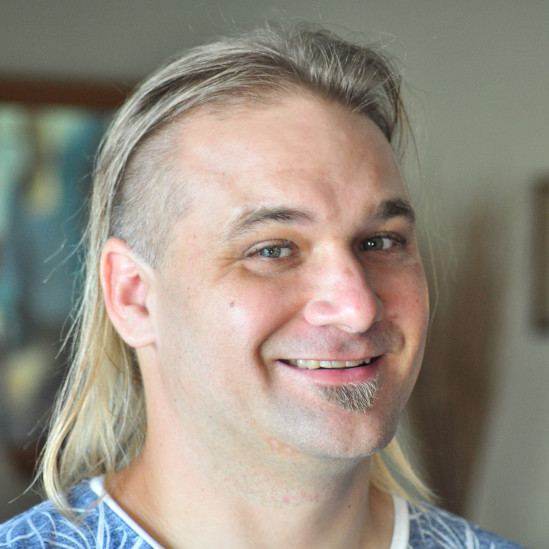 Ryan Lutz (’23, geography; minor in regenerative studies)
Ryan Lutz (’23, geography; minor in regenerative studies)
What motivated you to apply for the Fellowship program?
My life experience has taught me how important proper nutrition is, and has also made me aware of some of the help our planet needs in response to our existence on it. On every level I want the work I choose to do to have a positive impact on the world. Food insecurity and poor nutrition are very real problems which permeate our society, and my hope is that not only can the work I have done and will do here at the Lyle Center provide some needed short-term sustenance for some of my fellow Broncos and their families through the Poly Pantry program, but also that I will come away with valuable fundamental regenerative agriculture skills and practices to replicate and scale to solve real-world problems.
What achievement(s) are you most proud of from your time at the Center? What would be your advice for other CPP students interested in applying to be Fellows?
While some very tangible results were manifest this summer, I believe the most important achievements resulting from this fellowship of which I am most proud are the intangible: building working relationships with people, and the privilege of working on campus, outdoors, since May. There were a few hot days, but it was worth it to be outside working with my hands.
I think if you're interested in applying to be a fellow based on what you've read about the experience, you'll probably really enjoy it and should apply. The weeding really isn't that bad. Besides, it's a pretty chill place to spend a morning--working outside, getting exercise--all while making a positive difference.
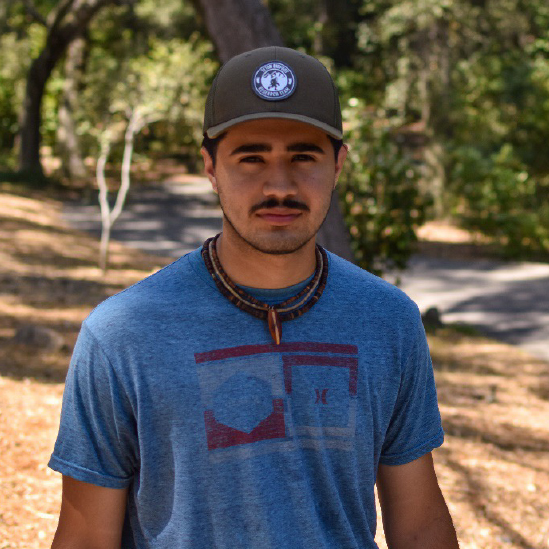 Kevin Francisco Corona (’23, agribusiness and food industry management)
Kevin Francisco Corona (’23, agribusiness and food industry management)
“I am currently an undergraduate but foresee attending graduate school at Cal Poly Pomona. During the Spring of 2021, I spent most of my time contemplating issues I would like to address and target as a discipline. Some of the issues involve world hunger, sustainability, and education. Fortunately, I received an email from the Lyle Center for Regenerative Studies with an opportunity to be involved as a fellow for a Fellowship program in the Summer of 2021.
When I first received the email, I applied with no hesitation because the description of the program altered a connection to what I envision and aspire for in the future of society and our only home, Earth.
The Fellowship program at Lyle Center for Regenerative Studies is all about sustainability which motivated me to apply. During my time as a Fellow, I worked on several projects that involve clearing weeds, starting seedlings, fixing a shed house, harvesting apples and blackberries for The Poly Pantry, running drip irrigation systems, and forming/clearing land for a garden. Working on these projects helped me reflect on what it takes to manage and maintain the earth and humans because the Lyle Center in a way is its own village that is responsible for maintaining a diverse ecosystem and its staff/students by also letting nature do its work without disrupting the process. Largely, the achievement I am most proud of from my time at the Center is getting started with arable land to grow food and feed students in the Fall of 2021.
If future Cal Poly Pomona students seek interest in the program and intend on applying, I advise them to impart their knowledge with the center and enjoy the workspace around them because it truly does feel as if you are working in a village located in the forest!"
Investing in Sustainability Education
Randall Lewis translates his interest in sustainability by investing in several significant initiatives at the College of Environmental Design and the Lyle Center for Regenerative Studies.
With support from Lewis, the Center In 2020 launched the Randall Lewis Lyle Center Fellowship. This program awards $2,400 to each recipient and the opportunity for Cal Poly Pomona students to participate in the food production activities on the 16-acre site "living laboratory" and assist with the renovation of the vegetable garden area to grow food for the Poly Pantry. Other activities for fellows include conducting research, design, data collection and analysis, ideation, and project development at the Center.
Among other programs and initiatives, Lewis funded the Upland Unified School District Gardens Program (2017-2020), an internship opportunity for undergraduate and graduate students that tied together nutrition, food gardening and public schools.
In the 2021-22 academic year, he sponsored the creation of a new course, Sustainable Cities (URP 5900), offered by the Department of Urban and Regional Planning. This lab/project course will give ENV graduate students and undergraduate seniors the chance to work on a housing and sustainability report, and resource and policy guidance for the Pomona area.
